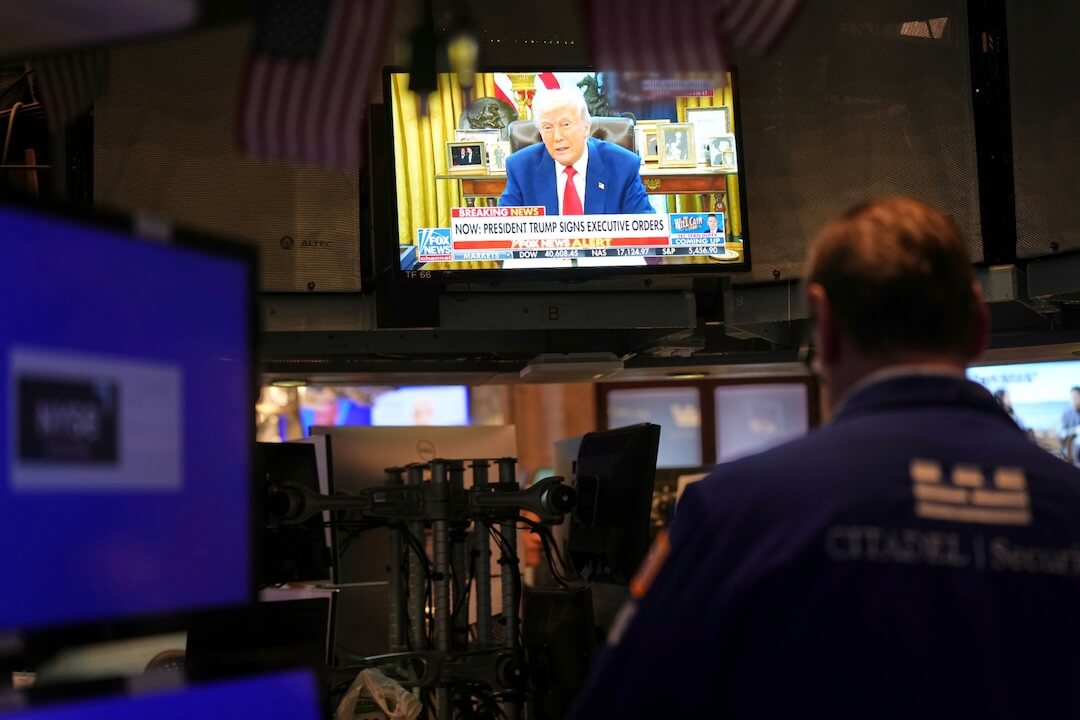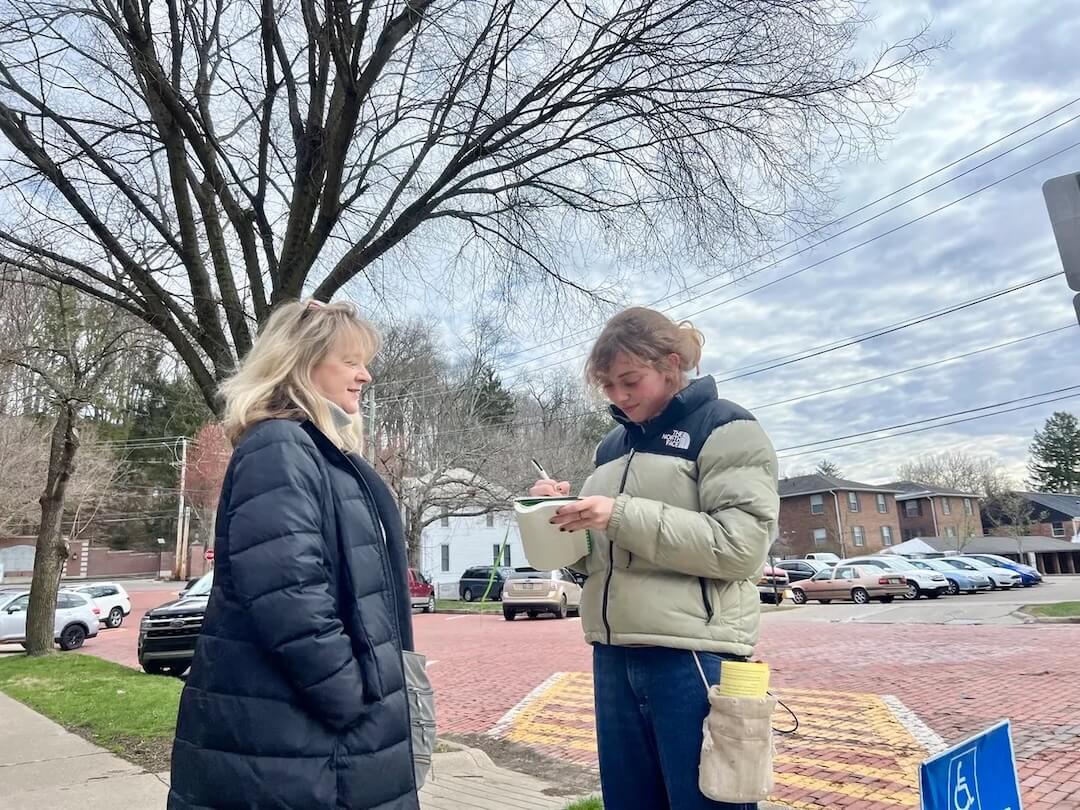CJR | The New York Times | TPM | The Washington Post | CNN | TPM | Tampa Bay Times | The Guardian | AJR | The New York Times
You only have to pump the words “why conventions matter” into Google News to realize a counterintuitive take on their worth is overdue. Brendan Nyhan says the reason you see so many people deriding conventions as “infomercials” is they make it much harder for members of the news media to step between message and voters:
In every other aspect of the campaign, the candidates and their messages are filtered through journalists who are reticent to allow them to speak or be quoted at any length without interpretation or analysis. … Unlike the debates, which are moderated by journalists, the conventions allow the parties and the candidate to speak to voters unfiltered in prime time.
That hasn’t stopped journalists from trying, writes Bill Keller, who says conventions “are tedious, scripted events matched and surpassed in their shallowness by the ceaseless chorus of commentary supplied by my tribe.”
Jeremy W. Peters checks in on media coverage of the convention and finds “the new media has decided that it wants to be the old media, and the old media has decided that it wants to be the new media.” The Huffington Post and Bloomberg are hawking magazines; The Washington Post and The New York Times are splashing out on Internet video, which they (privately) concede “draw extremely low traffic compared with their articles.” Politico Editor-in-Chief John Harris describes its video effort as “kind of groping cheerfully with a sense of fun and experimentation.”
Some journalists are finding news to cover: “An attendee at the Republican National Convention in Tampa on Tuesday allegedly threw nuts at a black camerawoman working for CNN and said ‘This is how we feed animals,’ ” Kyle Leighton reported Tuesday night. In a statement, CNN confirmed “there was an incident directed at an employee inside the Tampa Bay Times Forum earlier this afternoon” and said it “worked with convention officials to address this matter and will have no further comment.”
Erik Wemple predicted the report “will have at least a full day in the news cycle.”
There’ll be the quest to find both the employee against whom the incident was directed as well as the person who directed the incident. There’ll be a search for other witnesses as well. If those details drip and drip and drip, the event could pose a distraction for the goings-on, though we have no idea who did it and what connection the person may have to the convention.
Wemple said on Twitter CNN should report it instead of not commenting further, kicking off a microdebate over whether the incident is news. Marc Ambinder wrote that it’s only news if it’s “part of a pattern.” Barton Gellman wrote that “Racism that feels at home enough to speak aloud may say something about the group, in a racially tinged campaign.”
CNN did report the incident online Wednesday morning. An unbylined 155-word online story says two attendees were booted for the nut-throwing incident.
Also at Talking Points Memo, Josh Marshall argues CNN’s reluctance to cover the story reflects its middle-of-the-road mission:
There’s a normal and correct tendency for a news outfit not to want to make itself into the story. But this goes way beyond that and puts CNN in an exquisitely awkward position. CNN has been bending over backwards of late trying to position itself as the last holy beacon of objectivity and fairness in cable news, as Fox and MSNBC play to more clearly partisan audiences.
More will come out, Marshall predicts, because “A political convention, by definition, is a news vacuum. And nature abhors a vacuum.” But maybe CNN viewers don’t: 41 percent of them took a “neutral” view of the network’s coverage, the most ambivalent of any TV viewers surveyed.
I am going to make a bold prediction of my own: The incident will feature on Wednesday’s “Daily Show,” currently filming in Tampa. Tampa Bay Times TV critic Eric Deggans writes about the show’s touchdown in Tampa, its “a rat-a-tat spray of Florida jokes,” how difficult it is to get into a taping, even with tickets. You can take the snarkers out of New York, Deggans writes, but…
Indeed, you’d hardly know a Republican convention was under way just a mile or so down the road, as Stewart’s fans roared over bits criticizing Missouri GOP Senate candidate Todd Akin’s comments on “legitimate rape” and conservative complaints about media coverage of hurricanes during the RNC.
Optics watch
AJR has compiled a list of mentions of “optics” in election coverage. Writing in The Guardian, Oliver Burkeman says the “ghastly” term is pseudo-technical claptrap, the type of word that can “help foster a bond between actual campaign insiders and journalists who want to feel like insiders.”
In 2010 New York Times language columnist Ben Zimmer laid the blame for the term on Canada. (Carly Rae Jepsen and now this? Mass the troops in Sault Ste. Marie, Mich., stat!) Lexicographer Stefan Dollinger told Zimmer “bilingual Canadians would be familiar with a similar French term, optique.”
In standard French, optique can refer to the science of optics or it can mean “perspective, point of view.” Beyond those core meanings, optique has been extended to visual appearances in general (much like the German equivalent Optik). Canadian-French usage adds a more politically focused angle, which seems to have been imported across the bilingual divide.
So there you have it, it’s the fault of Francophone Canadians.
Related: Brzezinski: ‘Somewhere over the years, the news media got lost and forgot what news was’ (Poynter) | Conventions are a “ridiculous use of journalistic talent” (The Washington Post) | Convention war stories from Sam Donaldson, others (ABC News) | Romney, Obama narratives overwhelmingly negative as journalists lose control of campaign coverage






Comments